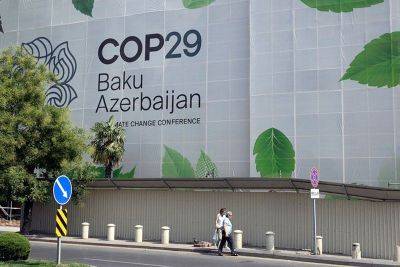AI is 'accelerating the climate crisis,' expert warns
MONTREAL, Canada — If you care about the environment, think twice about using AI.
Generative artificial intelligence uses 30 times more energy than a traditional search engine, warns researcher Sasha Luccioni, on a mission to raise awareness about the environmental impact of the hot new technology.
Recognized as one of the 100 most influential people in the world of AI by the American magazine Time in 2024, the Canadian computer scientist of Russian origin has sought for several years to quantify the emissions of programs like ChatGPT or Midjourney.
"I find it particularly disappointing that generative AI is used to search the Internet," laments the researcher, who spoke with AFP on the sidelines of the ALL IN artificial intelligence conference, in Montreal.
The language models on which the programs are based require enormous computing capacities to train on billions of data points, necessitating powerful servers.
Then there's the energy used to respond to each individual user's requests.
Instead of simply extracting information, "like a search engine would do to find the capital of a country, for example," AI programs "generate new information," making the whole thing "much more energy-intensive," she explains.
According to the International Energy Agency, the combined AI and the cryptocurrency sectors consumed nearly 460 terawatt hours of electricity in 2022 -- two percent of total global production.
A leading researcher on the impact of AI on climate, Luccioni participated in 2020 in the creation of a tool for developers to quantify the carbon footprint of running a piece of code. "CodeCarbon" has since been downloaded more than a million times.
Head of the climate strategy of startup Hugging Face, a platform for sharing open-access AI models, she is now working on creating a certification system for algorithms.
Similar to the program from the US Environmental Protection Agency that awards scores based on the energy consumption of electronic devices and appliances, it would make it possible to know an AI product's energy consumption in order to encourage users and developers to "make better decisions."
"We don't take into account water or rare materials," she







